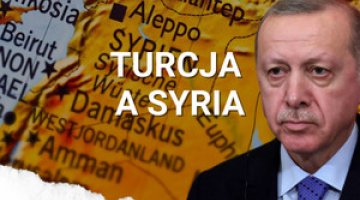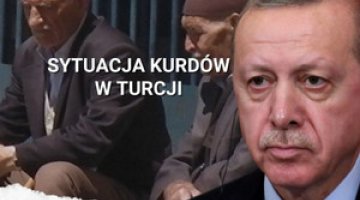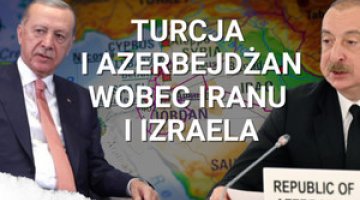Turkey: former allies in conflict
The political crisis which began on 17 December, with the arrest of around fifty people linked to the governing Justice and Development Party (AKP) on corruption charges, is continuing in Turkey. The arrests brought about a reshuffle in the cabinet, followed by a counter-offensive from Prime Minister Recep Tayyip Erdogan, who branded the arrests as an anti-government coup. The government has embarked on a massive purge of staff in the police (350 officers from different parts of the country were dismissed overnight from 6 to 7 January alone), and it has been interfering with the operation of the prosecution authorities and placing pressure on the media. These moves, viewed by external observers as questioning the legal and democratic foundations of the Turkish state, have been criticised by the international community and have alarmed foreign investors. All this has contributed to falling prices on the stock market and an additional weakening of the lira exchange rate, which had already been falling.
The arrests of 17 December and the government’s reaction are de facto an effect of the split within the government camp in the broad meaning of the term – between Prime Minister Erdogan and the religious-social movement led by Fethullah Gulen (see Appendix) – and of the relentless struggle between the two circles for power and influence. Both sides have made use of state structures in pursuit of their goals in this struggle. As a result, the rule of law and democratic standards have been undemined, the state apparatus is deteriorating, and Turkey is moving away from the western political standards. This is thus the deepest political crisis since AKP took power in 2002.
The further developments of changes and the direction they will take are difficult to predict. The crisis came as a surprise to the government after what was a clearly unsuccessful year both domestically (mass street protests in the summer) and in foreign relations (the failure of the Middle Eastern policy) and as election season is about to start (local elections have been scheduled for 30 March, and the presidential election is in August). AKP has no serious rival, and Recep Tayyip Erdogan is still a popular politician. Thus it appears that a change in government is rather unlikely in the foreseeable future. Furthermore, a possible neutralisation of Gulen’s movement will additionally allow the prime minister to get rid of the last circle of major influence independent of his power. However, the political losses and those inflicted upon the country’s image may turn out to be more costly for the government than the benefits of the victory.
The political context
AKP led by Erdogan has governed Turkey since 2002. Over this period, it has dominated the political scene, monopolised the public debate as regards setting the goals and lines of the country’s development, and it has above all subjugated the army, which had de facto previously stood above the civilian government. AKP’s rule has brought stability, economic development and extensive reforms to Turkey. These have brought the country closer to EU standards, also in political terms.
Fethullah Gulen’s movement, which has significant funds and influence in the education sector, media, business and state apparatus (including the prosecution authorities and the police) was one of the most important allies for AKP, also in its confrontation with the army. The movement’s representatives in the state administration formally reported to the government and followed its instructions. In reality, however, they enjoyed great autonomy in their actions.
Prime Minister Erdogan’s gradual creeping towards a hegemonic position on the Turkish political scene was sealed with his victory in the parliamentary election in 2011 for the third time in a row (with a support level of 49.8%). This has strongly affected the atmosphere of political life and the operation of the alliance with Gulen’s movement.
The slowing down of internal reform and the increasingly conservative rhetoric and autocratic ruling style adopted by the prime minister, combined with controversial changes in the political system being openly pushed through, have all given rise to dissatisfaction among the section of the Turkish public who hold liberal views. The mass anti-governmental protests last summer were a consequence of this. The confrontational stance taken to the protests, which the prime minister viewed as an attempted coup, adversely affected AKP’s image as a democratic party and led to a very strong polarisation of the public. As a consequence, the government has become even less receptive of any criticism.
Furthermore, since the army had been gradually but consistently subordinated to the civilian authorities, the government has ceased to view it as a political threat. What has become a problem for Erdogan is Gulen’s movement itself, since it has a strong position in the state administration, independent of the government (although this is difficult to measure due to the non-transparent nature of this movement and its lack of formal membership), and it is also showing ambition to pursue a policy of its own.
The crisis between the two groups has been deteriorating for several years. The government’s decision last autumn to ban dershane,educational institutions which prepared students for university examinations, served as a prelude for open confrontation. A significant part of the 4,000 or so dershane operating in Turkey are linked to Gulen’s movement, and form an important element of its social and financial base. The arrests of people closely linked to AKP on 17 December (civil servants, businessmen and also the sons of three members of the cabinet) should be viewed primarily as an act of retaliation against the prime minister’s moves against dershane. Nevertheless, it cannot be ruled out that the corruption charges are well-founded.
Since Erdogan now views the Gulen movement as a threat, he is suggesting a possible “reversal of the alliances” to the army, including, for instance, a potential revision of the sentences imposed on over 500 imprisoned active and retired military officers.
The consequences and forecasts
At the time the arrests took place the government was going through a period of weakness caused by the numerous failures it had suffered over the past year and during which it was preparing itself for the local election scheduled for March this year, which is expected in a way to renew AKP’s mandate to govern the country. The arrests have tarnished the image AKP has been consistently constructing for itself as a “clean hand” party. As a consequence of this Erdogan’s esteem, which had previously been unquestioned has now also been affected (his sons have also been mentioned among the individuals involved in corruption). The Gulen movement, which has been part of the government camp for over a decade, undoubtedly has vast knowledge of the government’s behind-the-scenes dealings. More attempts to attack the government should, therefore, be expected.
It is difficult to predict how AKP and the prime minister will survive the present crisis. Still, whatever the outcome of this confrontation, the government’s reputation will be tarnished significantly due to suspicions of corruption and its attempt to hush up the scandal by resorting to violence. Given all this, the local elections in March will be seen as a vote of confidence in the government. In terms of absolute numbers, AKP is unlikely to be beaten. However, any result besides a convincing victory will de facto mean political defeat, especially if the party’s candidates for mayor in one of the big cities, above all Istanbul and Ankara, lose the election. It is difficult to predict whether and to what extent the corruption scandal will affect support levels among AKP’s base electorate, the conservative people from the central part of the country, who have benefited over the past decade’s economic development. However, public sentiment may be affected by the economic situation. A continued outflow of foreign capital and the weakening of the national currency caused by the political crisis (although it cannot be said that the currency is weaker exclusively due to this crisis) may affect the government’s popularity.
Another severe crisis, after the protest last summer, is again forcing the prime minister to urgently mobilise his forces and measures to protect his political position. AKP is turning into a political force which is more and more focused on protecting the status quo against either real or imagined conspiracies and threats, and not on ambitious state reform. An AKP led by Erdogan, following its leader’s personal inclinations, is becoming an increasingly inaccessible and distrustful party. As the sensation of threat grows, AKP will also be more and more ready to take action that does not comply with the standards of a democratic country observing the rule of law.
The political crisis in Turkey has laid bare the distance existing between this country and the standards of a model democracy. It is even difficult to describe the phenomena existing there, such as the Fethullah Gulen Movement, in terms of Western democracy. Many factors are increasing the gap between Turkey and the norms of democracy: the recent war between Prime Minister Erdogan an the Gulen movement, where the emotional rhetoric of standing up against international conspiracy is employed, where the judiciary and state procedures are disregarded; the fact that law enforcement agencies and the media are at the service of politicians; and the mass purges of the state administration. The crisis has also indirectly affected Ankara’s regional position, which had already been significantly weakened; Turkey, plunged in non-transparent internal struggles, is not seen as an attractive political model. Ankara’s reputation as the only Middle Eastern democratic country obeying the rule of law striving to integrate with the EU has also been undermined.
Appendix
The Fethullah Gulen Movement, also known as Cemaat (the Community), the Hizmet Movement (Service) – a socio-religious movement, whose central figure is Fethullah Gulen (born in 1941 in Erzurum), a Turkish scholar and Muslim spiritual leader, who has been residing in the USA since 1999.
This movement has no organisational structures. In formal legal terms, it is an unstructured association of individuals and institutions who share their admiration for Gulen and his teachings. In practice, it is a network comprising thousands of organisations, institutions and companies dispersed all over the world whose actions are clearly coordinated.
Outside Turkey, education is the movement’s main pillar. It runs over one thousand schools and institutes of higher education across the globe, including in Central Asia, South-Eastern Asia, Africa, the USA and UE(including Poland). The schools are secular and are distinguished by their high level of teaching. The language of instruction is usually English.
Inside Turkey, the movement in fact has influence in all areas of public life. Schools, universities, the media (including Turkey’s most popular newspaper, Zaman), banks, companies (for example, the Turkish Confederation of Businessmen and Industrialists, TUSKON), charities, non-governmental organisations, etc. are linked to it. The movement also has vast influence in the state apparatus, above all in the police and judicial sector, which it has been constructing for years using secret infiltration methods.
In 2002, the Gulen movement forged an alliance with AKP to oppose the dominance of the army and Kemalist state elites. The movement supported Erdogan’s government, and in return was given the room to expand further The two circles partly permeated one another. However, they have never been identical in terms of the people who form them or their ideology (most AKP leaders are drawn from a different political and religious tradition). These differences concerned, for example, the tempo and the scale of the struggle against the army and the old establishment (the movement was more radical and was directly responsible for the investigations into the Ergenekon and Balyoz cases, which undermined the position of the army in the Turkish political system), and foreign policy (the movement is positively disposed to the USA and Israel). Over time, more and more tension could be observed between Erdogan and the movement. Before the election in 2011, the prime minister removed candidates linked to Gulen from election lists.
Gulen in his teachings emphasises the need to combine faith and modern science, democracy and the free market, the significance of service for the benefit of the common good and the weight of dialogue between different religions and cultures.
In practice, the Gulen Movement is a socio-political movement, making efforts to maximise its influence in Turkey. The movement has been accused of being involved in surveillance,intimidating or arresting its opponents, critics and former members and of judicial abuse, which is possible due to its influence among the justice and security authorities.




